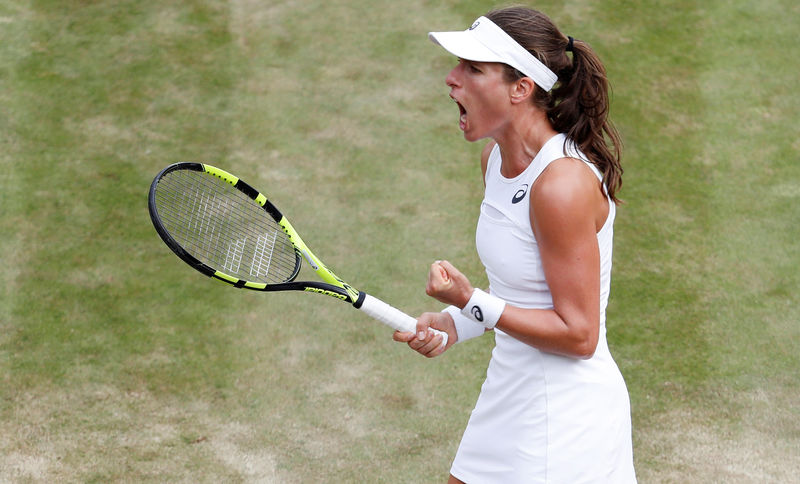By Pravin Char
LONDON (Reuters) - Tennis can be mental warfare.
Just ask Britain's Johanna Konta who held herself together under intense pressure to prevail 10-8 in the final set of an epic clash at Wimbledon last week. Or Andy Murray, who survived a scare under the weight of huge home crowd expectations.
How can a top player thrive in the psychological trenches? The answer, according to sports psychiatrist Steve Peters, is by not thinking at all.
"You've got to work on your instincts - tennis is a very instinctive game," said Peters, who has worked with several tennis players as well as the likes of snooker champion Ronnie O'Sullivan, Liverpool soccer club and the British cycling team.
"You haven't got time to think, don't let thoughts interfere with your play," he told Reuters.
"Hesitation is fatal."
While "not thinking" might seem a simple task, Peters said, it could take a great deal of preparation off court to hone your mind so you will not buckle under the great expectations of a home crowd, choke on a pivotal point, or crumble when behind.
"Most people would say psychology in tennis is a massive factor," he said. "Some people are naturally gifted but the rest of us have to manage our minds.
"What I do with athletes is a process of getting them prepared for what they are going to have to go through - it's a skill, mental gymnastics, something you have to practise."
Roger Federer has said that learning to control his on-court emotions helped him achieve his success. By contrast, Konta's coach Wim Fissette has suggested she should perhaps "break a racket once in a while and get the frustrations out".
Peters said different players had different vulnerabilities - though a common problem is an inability to put errors out of mind without them affecting your game.
He stressed there is no one right way to train mental resilience, pointing to the contrasting mindsets of arch-rivals John McEnroe and Bjorn Borg in years gone by. The Swede was at his best while sailing serenely through matches while the American used conflict and drama to bring out his best tennis.

"Borg was known as the ice king while McEnroe was volatile - that was their personality and I would work with that," Peters added. "I wouldn't try to turn McEnroe into an ice cube."